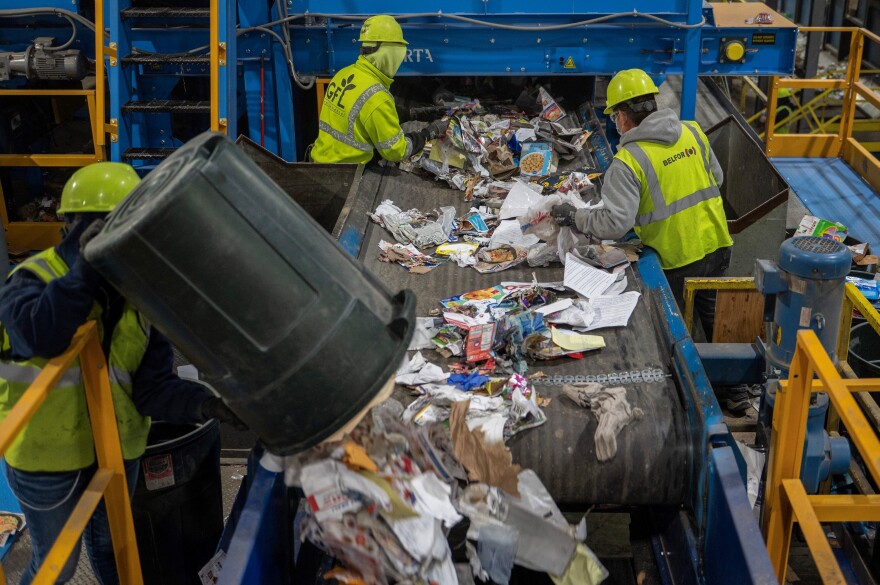Recycling sounds easy, but nearly a quarter of what gets sent to facilities can't be recycled, according to the Mid-America Regional Council. That's partly because of contamination, when products that aren't recyclable are put in bins, but the rules have also changed.
"For years, we've heard the mantra of 'recycle plastics number one through number seven.' and that's what you see everywhere. You still see it on websites," Matt Riggs, the outreach coordinator for Mid-America Regional Council's Solid Waste Management District, told KCUR's Up To Date.
Those rules changed four or five years ago, said Jeremy Cooper, who runs a GFL materials recovery facility in Harrisonville.
Instead of determining a product's recyclability based solely on its resin code, Riggs suggests judging a plastic item based on its characteristics. It's got to have solid structure — containers such as bottles, tubs, jars and buckets up to five gallons are all fair game. Then, if it's labeled with a number one, two, four or five, "You're golden," Riggs said.
Fewer types of plastic are considered recyclable now because it's hard to find places for them to be processed, so there's little point in collecting it.
Nationally, NPR reports only about five percent of the plastic created every year gets recycled, but Cooper says as much material as possible that comes through his facility is sent throughout the country to be turned into new products.
Recycling FAQs
Wondering if an item can go in your curbside recycling bin? Here's a guide to common questions from KCUR listeners:
Clamshells, often used for berries or takeout, should not be recycled — the plastic isn't sturdy enough and is often contaminated with food.
Plastic bags and film are recyclable, but can't go in your curbside bin or to a recycling center. Many grocery store chains collect them.
Fast food cups are often contaminated with food or drink, and it's hard to find an end market for them, so they're not recyclable.
Aluminum foil and pie plates, cleaned and crumpled, can be recycled.
As long as pizza boxes aren't covered in cheese or grease, they're recyclable.
Styrofoam that's been in contact with food or beverages can't be recycled, but big sheets or blocks that pad boxes can be at select businesses in the metro.
Cardboard products without a polyethylene coating can be recycled — even if they've been in the freezer.
Plastic smaller than a credit card or larger than a five-gallon bucket can't be recycled.
More information on what can and can't be recycled is available at recyclespot.org.
- Matt Riggs, Outreach Coordinator, Mid-America Regional Council Solid Waste Management District
- Jeremy Cooper, plant manager, GFL Harrisonville materials recovery facility







